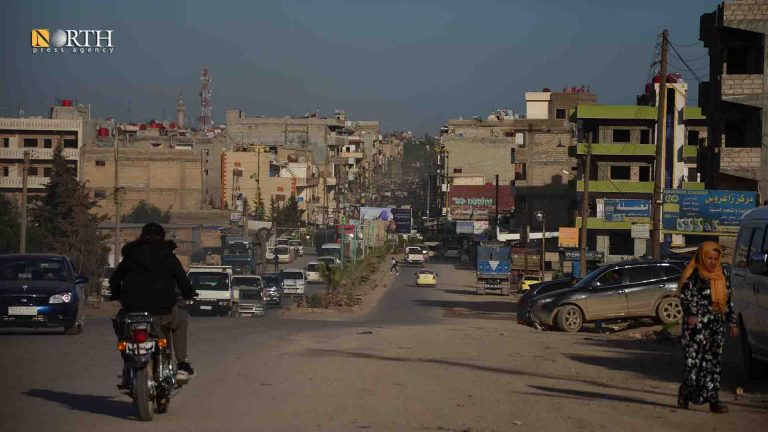QAMISHLI, Syria (North Press) – Syriac politicians in Qamishli, northeastern Syria, say that attempts to resolve differences in the opposition Syrian Negotiations Committee are now useless in light of the blockage of negotiation with the regime and various communities’ lack of representation.
Prior the fifth round of the Syrian Constitutional Committee (SCC), differences emerged within the ranks of the negotiating body represented by the opposition delegation, which came out due to a message sent by the Moscow and Cairo platforms and the National Coordination Committee (NCC) to UN Envoy to Syria Geir Pedersen.
In the letters, they demanded the halt of the disintegration of the Negotiations Committee, fearing that this would affect the opposition bloc in the Constitutional Committee, which might necessitate stopping its meetings.
The letter stated that it is necessary to intervene to resolve the division that exists in the negotiating body, and that there is an obstructive party that has controlled the authority and held its meetings for a year, according to what was reported by local and international media.
Gabriel Moshe, the head of relations at the Assyrian Democratic Organization, says that the differences in the Syrian negotiating body began more than a year ago when the Kingdom of Saudi Arabia called for a meeting to replace the eight independents. A dispute occurred between the old independents, the factions and the Turkish-backed Syrian National Coalition (SNC) and the NCC and Cairo and Moscow platforms.”
“There are serious attempts to overcome these differences and find some kind of consensus to solve this problem,” he added.
On January 25, the work of the Constitutional Committee began in the Swiss capital Geneva and continued until January 29 under the direction of Geir Pedersen.
During a press conference Pedersen described the talks as “disappointing.”
Regarding what is reported in the press about re-forming the small body, he said, “There is an internal system for the Constitutional Committee of the negotiating body which allows the communities to switch their representatives within the committee.”
Moshe believes that it is natural that there will be some proposals, but making any change in light of the current dispute in the functioning of the Constitutional Committee will not help with the system disrupting the committee’s work.
Moshe accused Russia of trying to drag the work of the Constitutional Committee to Astana, and that it is trying to undermine UN Resolution 2254 by imposing a solution commensurate with its bias towards the regime.
Sanhrib Barsoum, co-chair of the Syriac Union Party, said that the reason for the delay in drafting the constitution and the failure of the Constitutional Committee sessions is that the Astana countries (Russia, Turkey, and Iran), which built the Constitutional Committee on the basis of their interests and consensus, did not specify a deadline for the drafting of the constitution and the work of the committee.
He added that decision-making mechanisms within the SCC allowed the Syrian regime’s delegation to delay and obstruct the committee’s work.
Barsoum says that the reason for the emergence of differences within the negotiating body is the existence of contradictions among them, and also the domination of the SNC over the other parties.
Barsoum believes that the opposition participating in the negotiations does not represent all Syrians, especially with the absence of representatives of the Autonomous Administration and the marginalization of Syriac and Kurdish components within the ranks of the negotiating body.

